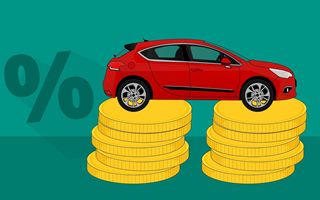(Finance) – The decline in the car market continues in September: according to what was communicated by the Ministry of Infrastructure and Transport, 121,666 cars were registered compared to the 136,316 registrations registered in the same month of the previous year, equal to a decrease of 10.75%.
There were 443,993 ownership transfers compared to 427,058 transfers recorded in September 2023, with an increase of 3.97%. The global volume of monthly sales, equal to 565,659, involved 21.51% new cars and 78.49% used cars.
The registrations represent the results of the National Vehicle Archive as of 30.9.2024, while the data relating to transfers of ownership refer to the certifications issued by the Motorization Offices in the month of September 2024.
“After the double-digit decline in August, the Italian car market recorded a contraction of 10.7% in September, with 121,666 new registrations compared to 136,316 units in the same month of 2023. In the first nine months of the year the growth of market is reduced by 2.1% compared to the same period in 2023, reaching a total of 1,202,122 units: a decline of 18.1% compared to pre-pandemic levels”, underlines UNRAE in a note.
On the electric vehicle front, thanks above all to the contribution of incentives, BEVs (Battery Electric Vehicles) grew by as much as 29%, reaching a market share of 5.2%: +1.5 percentage points compared to August and +1 .6 pp on September 2023. PHEVs (Plug-in Hybrid Electric Vehicles) remain essentially stable at 3.4% (-0.1 pp on August and -0.6 pp on September 2023), bringing the total share of ECVs at 8.6% (+1.0 pp on September 2023).
Michele Crisci, President of UNRAE commented on the situation of state incentives as follows: “The results of September, with a second consecutive decline in registrations, but a strong growth in BEVs, highlight the urgent need to refinance the incentives for the range of cars with 0 emissions -20 g/Km of CO2, making the 240 million euros of residual funds from the 2024 incentives immediately available.”
During the recent Competitiveness Council, the Minister of Business and Made in Italy, Adolfo Urso, presented the guidelines of the Italian proposal for a new European industrial policy, which will then be formulated with the other European countries that share its contents. For the automotive sectorthe Italian Government requests that the European Commission bring forward to 2025 the review of the methods that should lead to the cessation of internal combustion engines by 2035. There are three fundamental conditions set by Italy to achieve these objectives by 2035: establishment of a support fund for the entire automotive supply chain and for consumers who purchase electric vehicles produced in Europe; adoption of an approach based on technological neutrality, recognizing the role of biofuel, e-fuel and hydrogen; definition of a strategy for European autonomy in battery production.
In this regard, the President of UNRAE Michele Crisci reiterates: “It is essential to define as soon as possible both the European strategy for the automotive sector as a whole, and the one that the Italian Government intends to adopt to accompany the transition with a multi-year support plan, to give certainty to consumers and businesses in their choices of purchase”.
“We need to start immediately – continues Crisci – to work on an important issue that we have been raising for years: the need for a tax reform for company cars, asking that VAT deductibility and cost deductibility be linked to CO2 emissions and the amortization is reduced to 3 years; measures that must be implemented through the implementing decrees of the Fiscal Delegation”.
The Association “hopes that inter-ministerial tables on the taxation of the automotive sector will soon be convened, to relaunch the competitiveness of Italian companies and promote the renewal of the fleet, thus contributing to environmental sustainability and road safety”.
“In the demand support plan for the three-year period 2025-2027 – concludes the President – we ask the Government for targeted interventions, including the restoration of the 250 million euros, part of the billion originally foreseen for 2025, which were canceled due to the Cohesion Decree. Another key point is the removal of the price cap for cars in the 0-20 g/km range or, at least, its equalization to that of the 21-60 g/km range”.
